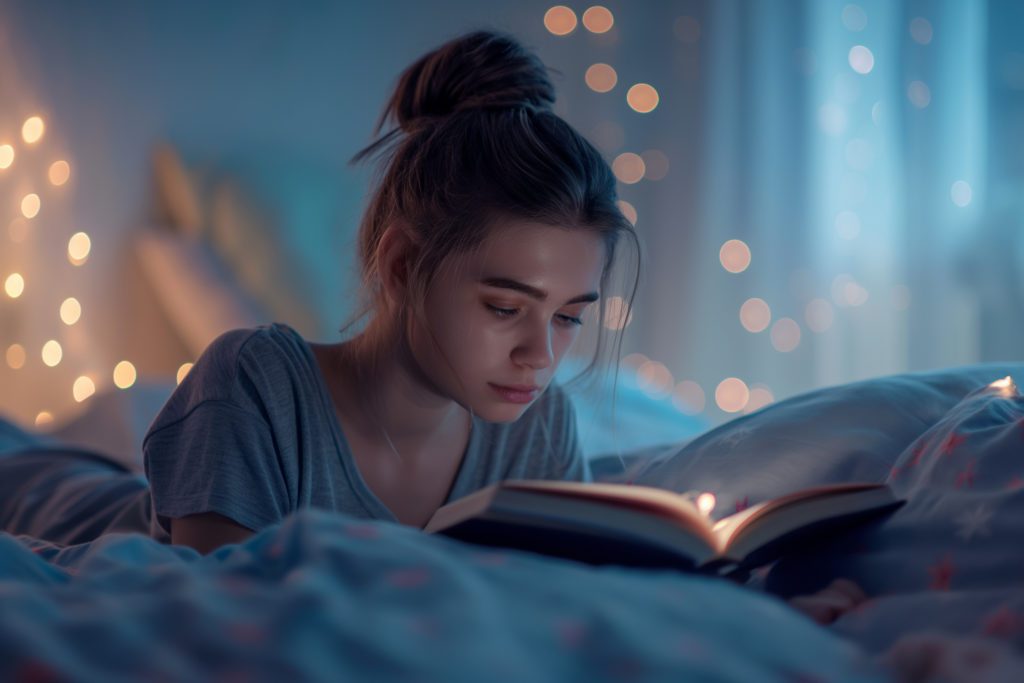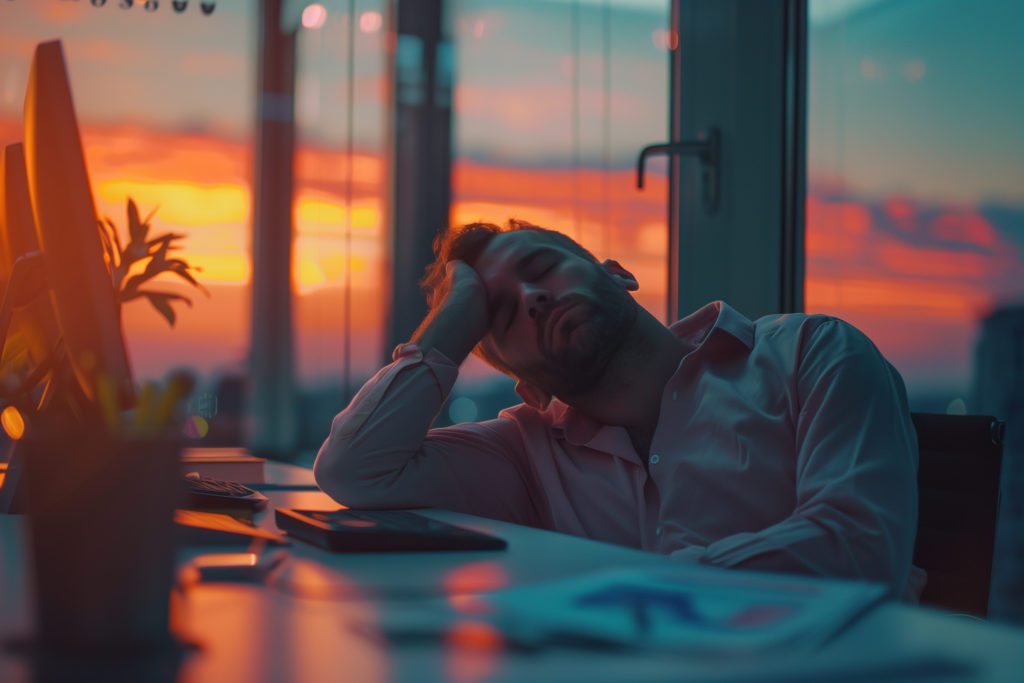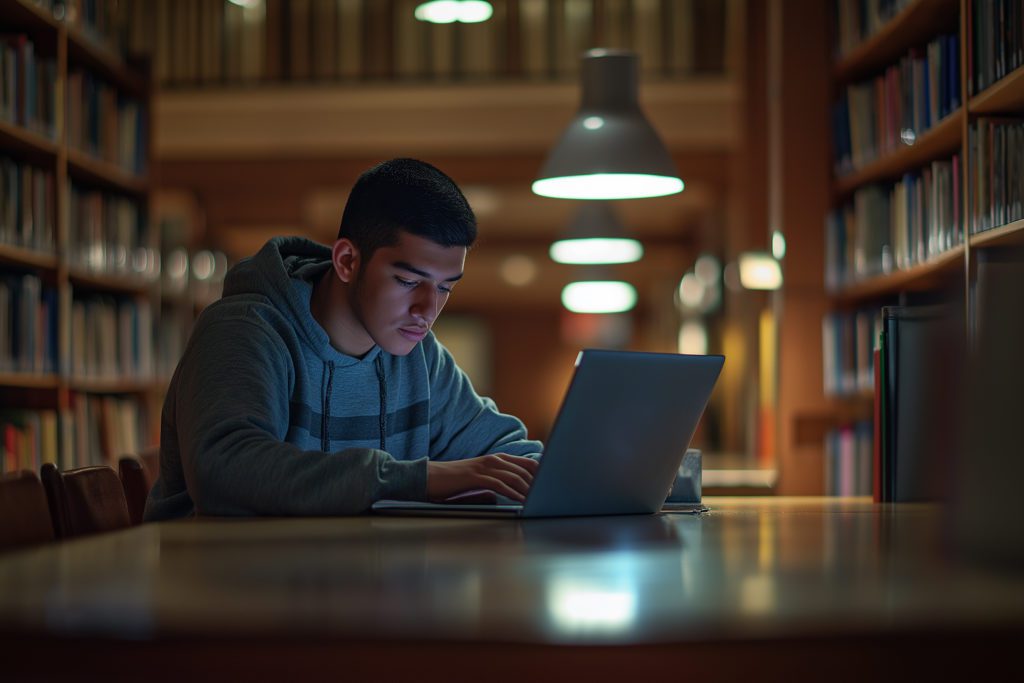
Do Artists Have Different Sleeping Habits than Other People?
Artists may sleep longer, but they often rank their sleep as being of poorer quality. See what artists can do to improve sleep and increase creativity.

If you find yourself using your creativity more than other people to create art, your sleeping habits may also differ.
Research shows that artists may sleep longer, but their sleep can be of poorer quality, whether because they’re excited about a project, worried about an upcoming deadline, or simply unable to calm their minds enough to sleep.
While artists may be more likely to have poor sleep, improving sleep hygiene habits is a key way for creative individuals to get enough sleep each night, which further fosters creativity and may prompt a masterpiece.
Artists Sleep More, but at A Lower Quality
In order to understand if (and how) the sleep habits of artists differ, one study placed art students head-to-head with non-art students, and found some shocking results.
Art students were shown to sleep more than their non-art counterparts, but they evaluated their sleep as being lower quality, which was backed up by a higher number of sleep disturbances and greater daytime dysfunction.
An even more interesting finding of the study is that, even among the art students, the higher the participant’s creativity, measured using the Torrance Tests of Creative Thinking (TTCT), the longer they slept and the later their sleep midpoint.
So, what do the findings of this study mean for creative individuals? It means that your creativity may affect your sleep, causing you to sleep for longer but at a lower quality, which can still leave you tired come morning. This study may also show that sleeping for longer leads to higher creativity.
Why Do Artists Have Poorer Quality Sleep?
This study opened up a barrage of questions, most prominently: Why is it that artistic individuals have poorer quality sleep?
Unfortunately, there is no definitive answer to this, but there are some theories:
Abounding Creativity
Those who are creatively inclined may go to bed with a ‘surplus’ of visual creativity, making them more alert and causing more sleep disturbances. Think of it as trying to go to bed after finally getting an “aha!” moment on your project—the creative ideas are flowing, and so you have a hard time turning your mind off in order to go to sleep.
Approaching Deadlines
When you’re an artist, deadlines can feel a lot more daunting, especially if you’re feeling in a creative rut and have no inspiration for what you’re working on. Knowing that each night you fall asleep is one day closer to your deadline can be a stressful feeling, which may make it hard for you to sleep soundly through the night.
Client Feedback
Creatives put their heart and soul into their work, so when you receive unfavorable feedback from a client, it can feel a bit like a personal attack. It’s the way for artistic work, but that doesn’t make it any less difficult to work through, and this may lead to more sleep disturbances during the night.
It’s All the Amygdala
Another interesting theory is that creativity doesn’t cause poor sleep; instead, poor sleep quality is what makes someone more creative, and it all has to do with the amygdala.
The amygdala is the emotional center of the brain, and it can see higher levels of activity when we’re sleep-deprived. This increased amygdala activity can then lead to higher levels of creativity.
So, your poor sleep quality may not be a result of your creativity; it may be what spurs it on.
The Importance of Sleep for Artists
Knowing that poor sleep quality may improve your creativity may make you wonder if it’s a good idea to cut down on how much sleep you get each night—it worked for Picasso and Leonardo da Vinci, right? Unfortunately, while these artists were known for their short sleeping habits and their exceptional productivity, science suggests that sleep may be better for your creativity than its lack is.
One analysis concluded that sleep is important for creative thinking, likely because of the high excitation, connectivity, and plasticity of REM sleep, qualities that are ideal for forming new connections—the basis of creativity, especially when problem-solving. The researchers also hypothesized that the iterative cycling of REM and non-REM sleep across the night (achievable only when you sleep solidly for 7-9 hours) facilitates creative thoughts.
Additionally, a lack of sleep can make you less productive. Being sleep-deprived leads to a more difficult time focusing and completing tasks, especially those that require multiple steps and sustained focus. When you’re sleep-deprived, you are also more likely to get sick since your immune system is not as effective, which can further eat away at your productivity and make it hard to focus on anything other than how ill you feel.
As for sleep’s final role in an artist’s life, many artistic creations were forged from a dream—not getting enough sleep takes away this source of inspiration.
How Artists Can Improve Their Sleep
Don’t think that you have to sacrifice good sleep in order to craft your masterpiece—try out these sleep tips to improve your sleep and make it so that you can be at your creative best during the day.
Artists can improve their sleep by:
- Following a schedule. Your inspiration may strike late, but it’s wise not to forego a sleep schedule just to craft your project. The more regular your sleep, the better it is, so jot down an idea if you need to in order to get to bed in time, but also don’t beat yourself up if you stay up later; sometimes, that’s just the way things go!
- Avoiding caffeine late in the day. When inspiration strikes, you don’t need caffeine to keep you energized, and your late afternoon coffee may be doing more harm to your sleep than you think. To preserve your sleep, avoid caffeine in the afternoon and night.
- Napping early and quickly. A power nap can help boost creativity, giving you a fresh perspective when you wake up. It’s best to keep naps to 20 minutes or less, though, and in the early afternoon so that you’re not interfering with your nighttime sleep.
- Unwinding before bed. If you try to sleep when you’re too excited about a project (or worried about an impending deadline), you won’t sleep well. So, relax beforehand with a calming activity such as reading or taking a bath.
Those who are artistic may be more inclined to struggle with sleep, but focusing on sleep hygiene habits can help you regulate your sleep so that you spend each night replenishing your creative juices, ready to create something new the next day.

Written by
Jessica G
Medical writer freelancer who has written hundreds of articles on varying topics. Masters of Engineering degree in Biomedical Engineering.
Download Pillow
Get help
Press & News
Legal
Connect
X (Twitter)
Company
Copyright © Neybox Digital Ltd.



